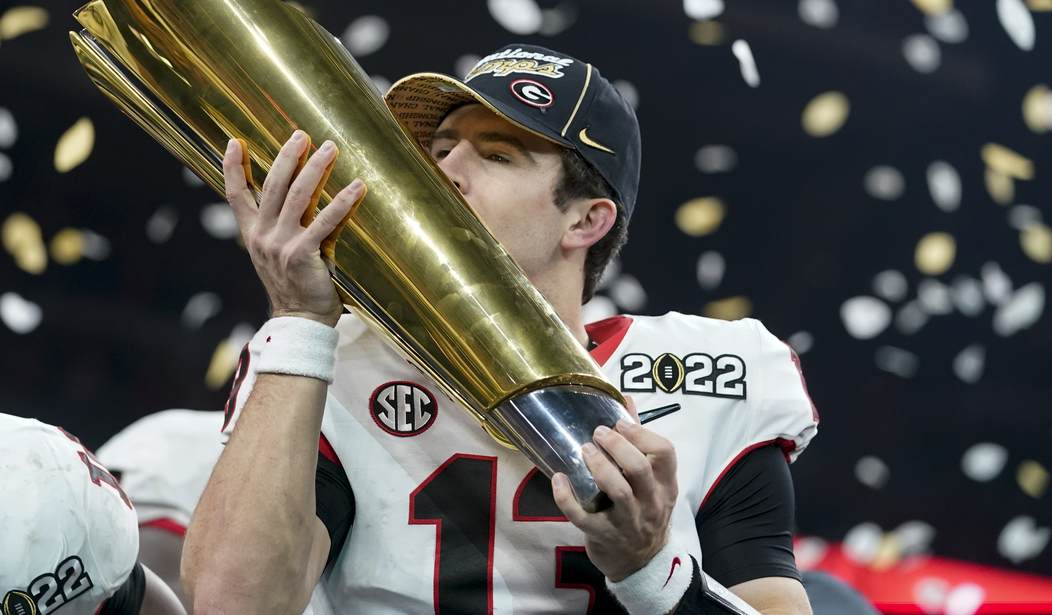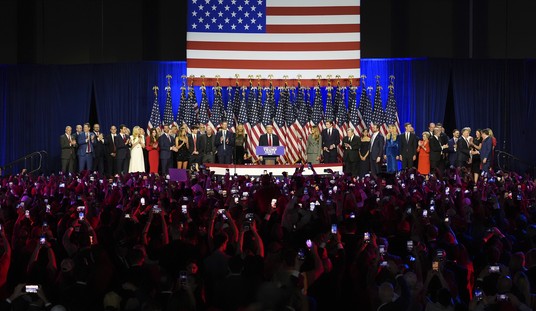If you’re reading me for the first time or if you’ve been living under a rock, I’m a massive fan of the Georgia Bulldogs. As an alumnus of the University of Georgia, I try to keep up with every sport, but I’m particularly invested in Georgia’s football and baseball programs.
The day I began writing this (Jan. 11) was the second anniversary of the morning after the game where Georgia won the 2021-2022 national championship in football. That game was the first of two back-to-back championships for my beloved team, and it ended a 41-year drought for the Bulldogs. All the memes and articles from that night that I saw on my Facebook memories filled me with the same excitement.
Those two national championships, along with the 1980 championship, which I don’t remember as vividly (I was eight years old), were tremendous experiences that I cherish, but one of my all-time favorite Georgia Bulldogs sports memories was one of the College Football Playoff semifinal games.
On Dec. 31, 2022, the Dawgs faced off against the Ohio State Buckeyes in the Peach Bowl at Mercedes-Benz Stadium in Atlanta. Both teams fought hard, and the game came down to the wire. With the score at 42-41 in favor of the Bulldogs, Ohio State kicker Noah Ruggles lined up to kick a game-winning field goal. The ball hooked left precisely as the clock struck midnight. Talk about a heck of a way to ring in the new year!
I’ve had plenty of exhilarating moments as a sports fan, including:
- The “worst-to-first” Atlanta Braves season in 1991. (Throughout the ’91 and ’92 postseason, my family and friends would tailgate at Atlanta-Fulton County Stadium; we had so much fun.)
- Braves World Series wins in 1995 and 2021.
- My brother’s high school football team making the playoffs.
- The Georgia Bulldogs basketball team unexpectedly winning the Southeastern Conference (SEC) tournament in 2008 as tornadoes bore down on Atlanta during the tournament.
- The only Major League Soccer game I ever attended, in which Atlanta United clinched a playoff spot in 2018.
Flashback: The College Football National Championship Means Everything to the Georgia Bulldogs
I’ve had my share of heartache as a sports fan, too, including:
- The Falcons blowing a 28-3 lead in Super Bowl LI.
- Just about the entire decade of the ‘80s as a Braves fan.
- The 2023 Orange Bowl, where the Alabama Crimson Tide beat the Georgia Bulldogs by three points, keeping us from a third consecutive national championship. (That one still stings because it’s so recent.)
I mention all these experiences — both good and bad — because my sports fandom is a massive part of who I am. I even enjoy watching games where I don’t have a dog (or a Dawg) in the fight; back in the day when my editing schedule included late Friday and Saturday nights, I would turn on ESPN+ and let college baseball games play in the background featuring teams from schools I didn’t know anything about, like the Long Beach State Dirtbags.
I recently listened to an episode of Charles C. W. Cooke’s podcast where he talked about what it means to be a sports fan. For him, the episode was catharsis after his Jacksonville Jaguars lost last weekend, failing to make the NFL playoffs.
Cooke has a unique perspective as a Brit who is now an American citizen. His fandom ranges from a deep-seated love for Manchester United as a child to his love of baseball and football as an American. (I think he’s also a Florida Gators fan, which goes to show that nobody’s perfect.)
He takes his sports discussion from the personal to the universal, discussing the advantages that come from sports and noting that “there are a lot of obvious benefits to playing and watching sports. It teaches teamwork; it teaches turn-taking. Teachers want to learn and respect rules. And if you're playing it yourself, it's good for you physically.”
I’ve never been athletic, even though I played soccer for a few seasons as a kid, but as a sports fan, I know what it means to belong to something bigger. I can identify with a team almost as if I were on the team (or coaching staff — since I'm a lot older than I used to be) myself.
Cooke explores a bigger benefit to sports fandom:
Above all that, in my estimation, it fills a human need for tribalism, which, if fulfilled in other areas can be absolutely disastrous.
I call myself a conservative primarily because I do not believe that human nature changes. I think, give or take, that human beings were fundamentally the same 2,000 years ago as they are now and that the challenge for those building institutions is to accept that and then to work out what to do about it.
That being so, I'm always worried about tribalism and about the violence that it can cause especially in men. And so I'm interested in ways of absorbing or defraying it, and sports do that. All that excitement and energy and elation and rage is sated and indulged during a game.
It's you vs. them. You love you, and you hate them. You want to beat them, crush them, destroy them. You're in your uniform. They're in their uniforms as in some Napoleonic battle. You fight. You have your songs and your chants, and worse besides, you engage in martial conduct, you attack, you defend, you strike, you target, you tackle, you knock out, but at the end of it all, you go home alive and without having destroyed your civilization in the process. And that is inordinately valuable. It's cathartic.
He hits the nail on the head. As a writer for a news website and a longtime political junkie, I credit my sports fandom with keeping me from becoming too tribalistic with politics. I’d rather be a hardcore UGA and Braves fan than be too doctrinaire pro- or anti-Trump. I can tie myself to principles over personality because my biggest non-faith and non-family loyalties are to the sports teams I cherish.
Cooke points out that “people who care greatly about one or more sports teams tend to be less likely to start thinking about politics or religion or race as a team sport, which has not been a good development ever.”
That tribalism (or, as I called it in my book “Neon Crosses,” “clannishness”) is why fans will cry when their coach retires or push for a struggling coach to be fired. It’s why college sports fans might turn on a player who enters the transfer portal or lament one who goes pro early.
Related: Entitled Sports Fans Have Lost the Plot
Cooke also brings up one of my favorite things about sports when he notes that:
...sports really do cross every boundary. When I go to the games in Jacksonville or even if I sit at a random bar in a random city that has TVs on the wall, I meet and talk to people of every color and creed and sexuality and age and political persuasion, and so on. And for a few hours, we're all on the same team, or at least on the same page. That really is E Pluribus Unum on a small scale.
I can identify with Bulldogs, Braves, and (my adopted NFL team) Philadelphia Eagles fans even if I haven’t met them before or will never see them again. My teams are “we” and “us” because I consider the teams and their fans as a family or even something akin to a national identity — when I adopted the Washington Huskies as my team for one night for this year’s national championship, I found myself saying “we” and “us.”
Years ago, I heard college football described as a “sublime psychosis.” It’s a perfect description of sports fandom in general. There’s plenty of benefit in sports for us as individuals and as a society, and I wholly believe that we’re better off for being able to enjoy them.










Join the conversation as a VIP Member